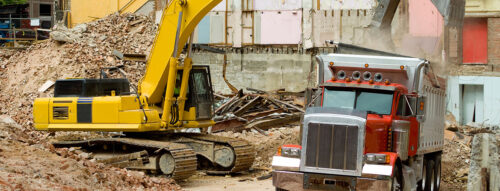
Natural Disaster Clean Up
Natural Disaster Clean Up: After a Typhoon

Natural Disaster Clean Up
Natural disasters are never a good thing. They injure people and cause huge financial losses. The US is one of the most affected countries in the world and storms and typhoons are very common in US states. In fact, the average Atlantic hurricane season brings 14 named storms, 3 major hurricanes, and 7 hurricanes. These disasters can come without a warning and cause havoc. This is why it is important to have a natural disaster clean up plan and know exactly what to do if a disaster strikes.
Cleaning up after natural disasters like typhoons requires a great deal of work. You can’t afford to let things settle naturally as ignoring your property can worsen the situation.
It is necessary to start cleaning up as soon as safely possible because the more it is prolonged, the more the situation will worsen. A delay in cleaning up after a natural disaster can put you and your loved ones in danger. Moreover, delays can cause the spread of mold and mildew and increase the risk of water-borne diseases. Furthermore, typhoons can also cause harmful chemical exposures and possess hygiene risks.
While cleaning and repairs are the first things on many people’s minds, it’s important to be cautious because there are a million safety hazards lurking in the damage and debris left behind after a natural disaster. Given below are some safety measures to remember when working on a natural disaster clean up plan.
Natural Disaster Clean Up: Things to Remember
- Do not forget to wear protective gear, including gloves, bulky waterproof shoes, face masks (if required), etc. so that there is no risk of contamination. Moreover, some of these equipment can also protect against electrocution and other such dangers.
- Do not enter the building until it is declared safe to enter by the authorities.
- Make sure to carry proper equipment, such as flashlights, when you enter a damaged structure for any reason.
- Don’t leave any cuts untreated and cover them immediately after treatment to avoid infections.
- Be sure to bring insect repellent along with you to prevent the spread of diseases through mosquito bites.
- Keep generators and all sources of carbon monoxide in a properly ventilated area.
- Steering clear of all power lines. This is very important as live wires can result in the loss of lives.
- Stay away from all areas declared as “danger zones” by the authorities.
- Minimize the usage of electrical equipment to avoid any danger.
- If dealing with standing water, opt for wooden sticks and poles to clear the debris.
- If using ladders, find an even ground to place the ladder and exercise caution while climbing up.
Tips For Cleaning After a Natural Disaster
Remember to put your safety first and wait for the nod from your local authorities before starting with your natural disaster clean up plan. This is important even if your structure has not faced any damage because nearby properties may have sustained damage and could be at risk. Also, remember these tips:
- Scour everything in your home that has come into contact with contaminated water or other destructive elements. Make use of soap and cold water while doing so.
- Disinfect all surfaces and floors in your home right away.
- Replace broken furniture and disinfect and clean fabric, including curtains and carpets.
- Pump out stationary water from your basement. It might be a good idea to hire the services of a professional natural disaster recovery company like Get Del Mar as we have the tools needed to pump huge quantities of water.
- Get rid of all garbage.
- Ask for help and get volunteers when dealing with heavy objects.
- Report additional waste to the cleaning authorities.
Conclusion
We hope these measures and guidelines will help you out during the cleaning phase. Remember to take breaks between cleaning to restore your energy and not tire yourself out. It is best that you work with a professional and let them handle the job. It will reduce the risk and provide you with much-needed rest after a natural disaster. Get in touch with us today to know more about how we can help.